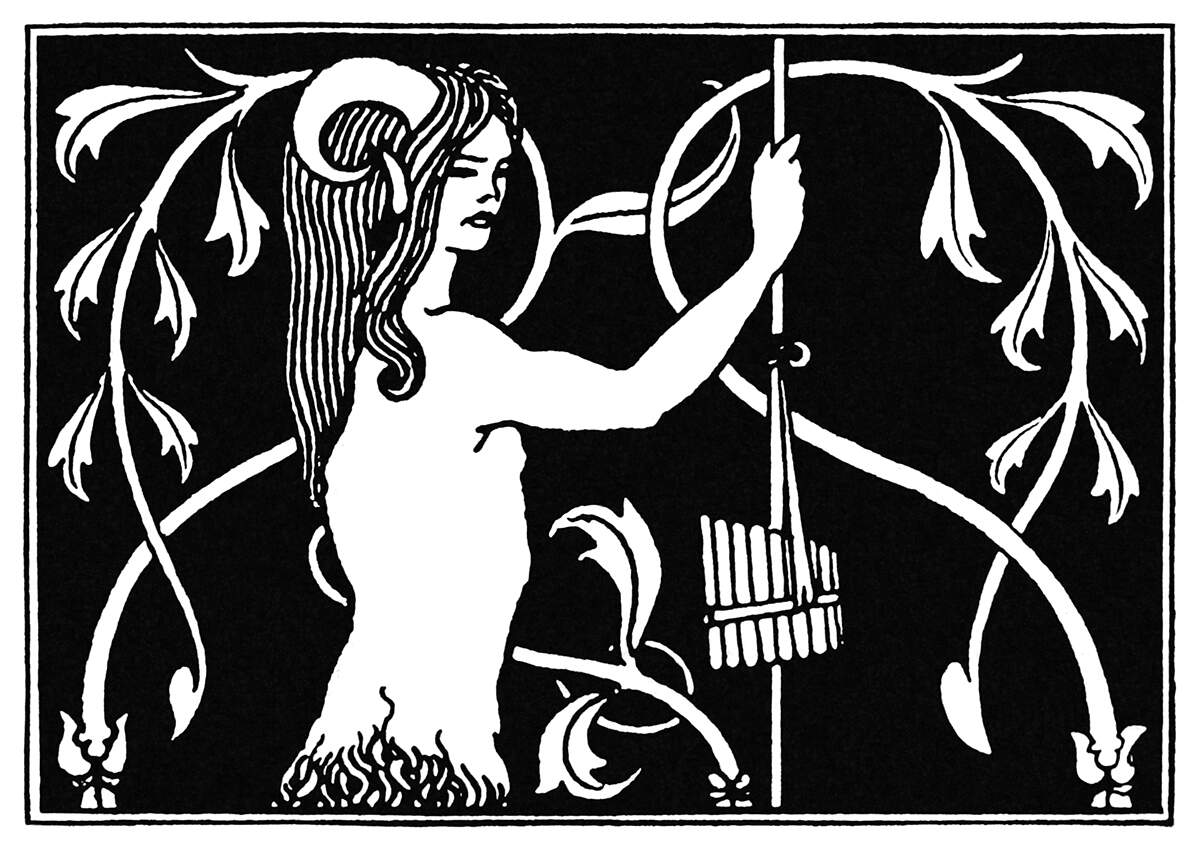
If you're into weird fiction/horror ala H.P. Lovecraft, the Welsh author Arthur Machen is essential reading. The collection in question, The House of Souls, includes four stories: A Fragment of Life, The White People, The Great God Pan (Stephen King has called this one the maybe the best [horror story] in the English language
), and The Inmost Light. Surprisingly creepy for the 1890s when they were first written. The collection was published in 1906 in the UK by Grant Richards, and 1922 in the US by Alfred Knopf. The cover of the UK edition by Sidney Sime is insane. The UK edition also included The Three Impostors, but I'll be focusing on the US edition here.
I'll say right now that my copy of this book is one of all-time favorite finds. Possibly my all-time favorite that I physically found and bought in the field, rather than online.
Let me just embed the edition in question from the Internet Archive here. Read it. I'll wait. If you want a better reading experience than this presents you, click on the title at the top:
A few years ago I came across a very affordable copy of this book at the Caliban Book Shop in Pittsburgh, PA, and knew I had to have it. No dust jacket, but just check out that decadent, fin-de-siecle yellow cover fabric in the photos below! The next thing I noticed was the endpapers, with their intriguing yellow and lime green design. I want to make sense of it, but I'm not sure I can. The closest I can hypothesize is it's some visual reference to cloven footprints, like Pan would have. That might be a stretch.
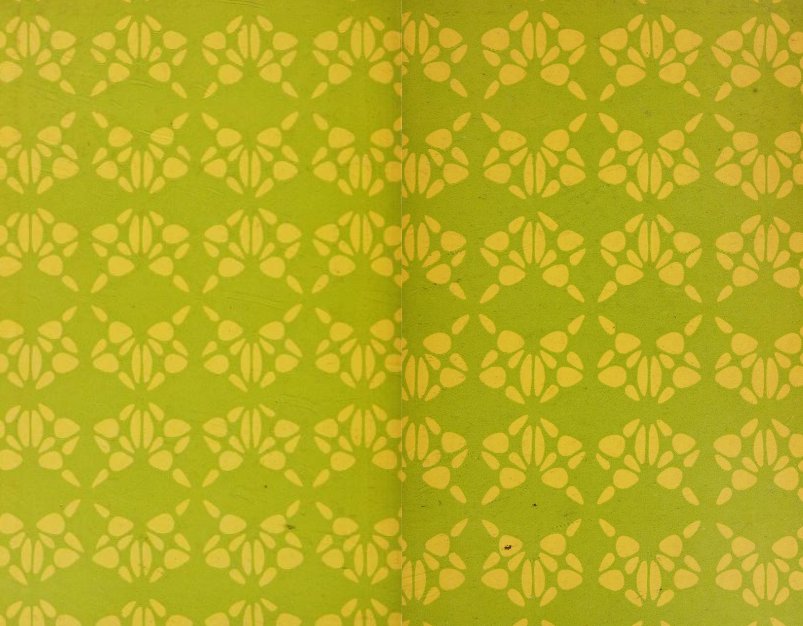
But then.
Then I see one of the most amazing custom bookplates I've ever come across, which also so happens to fit the aesthetic of the book almost too well. I was sold on the book already, but that bookplate took it over the edge.
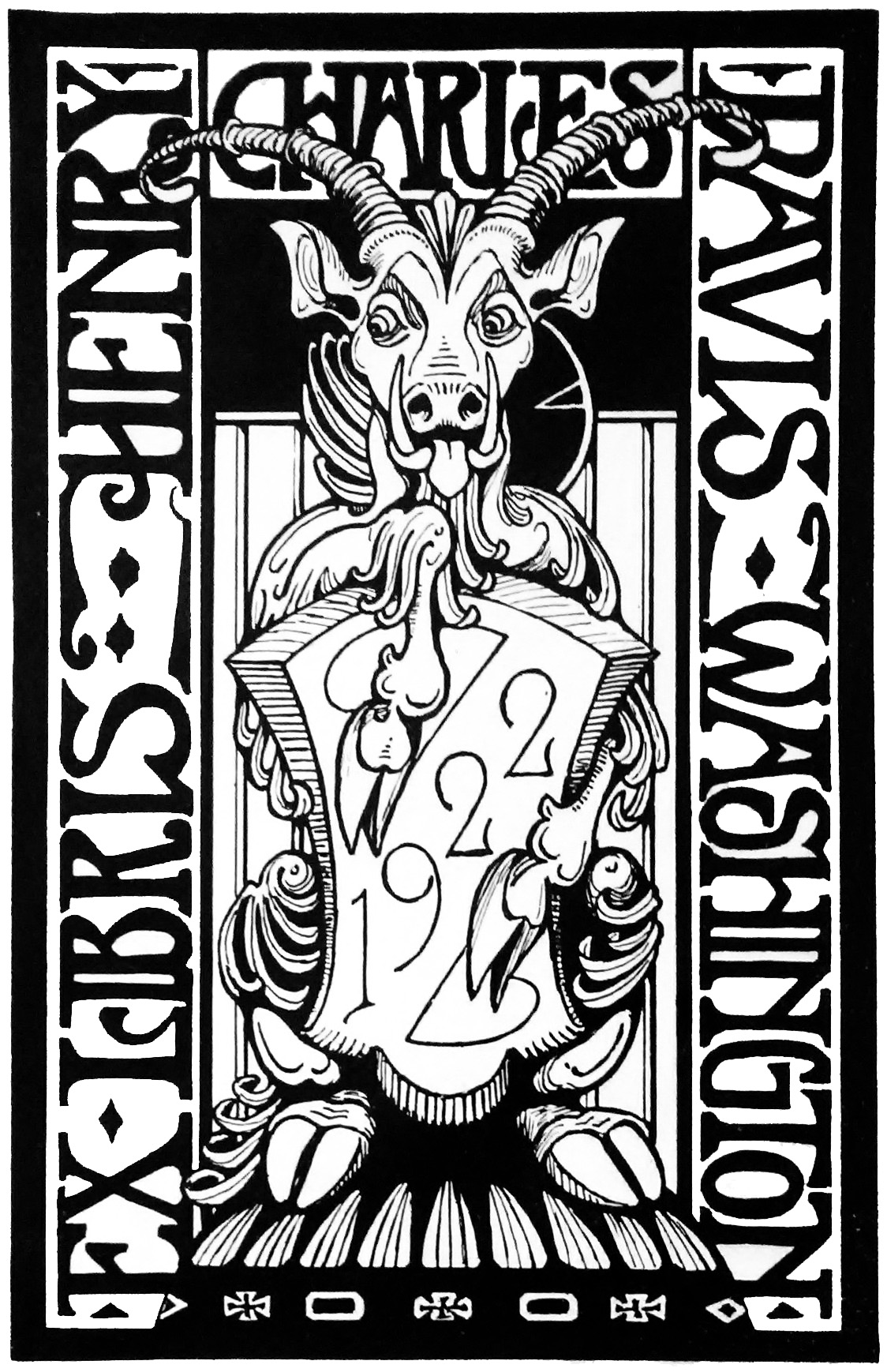
BASK! BASK IN ITS DIABOLICAL GLORY!
I always, always look up the the name on a custom bookplate. But Henry Charles Davis (of) Washington? No information. Seriously, who was this dude?
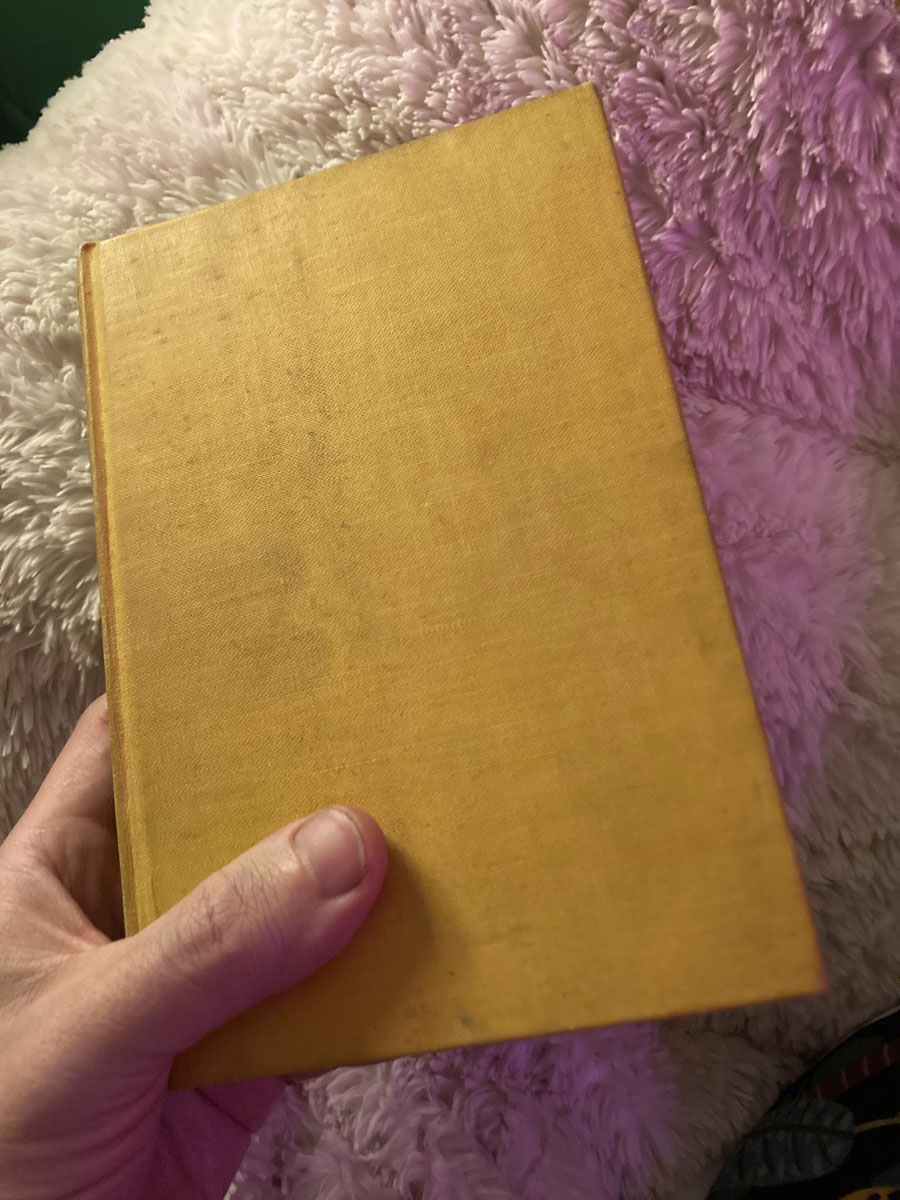
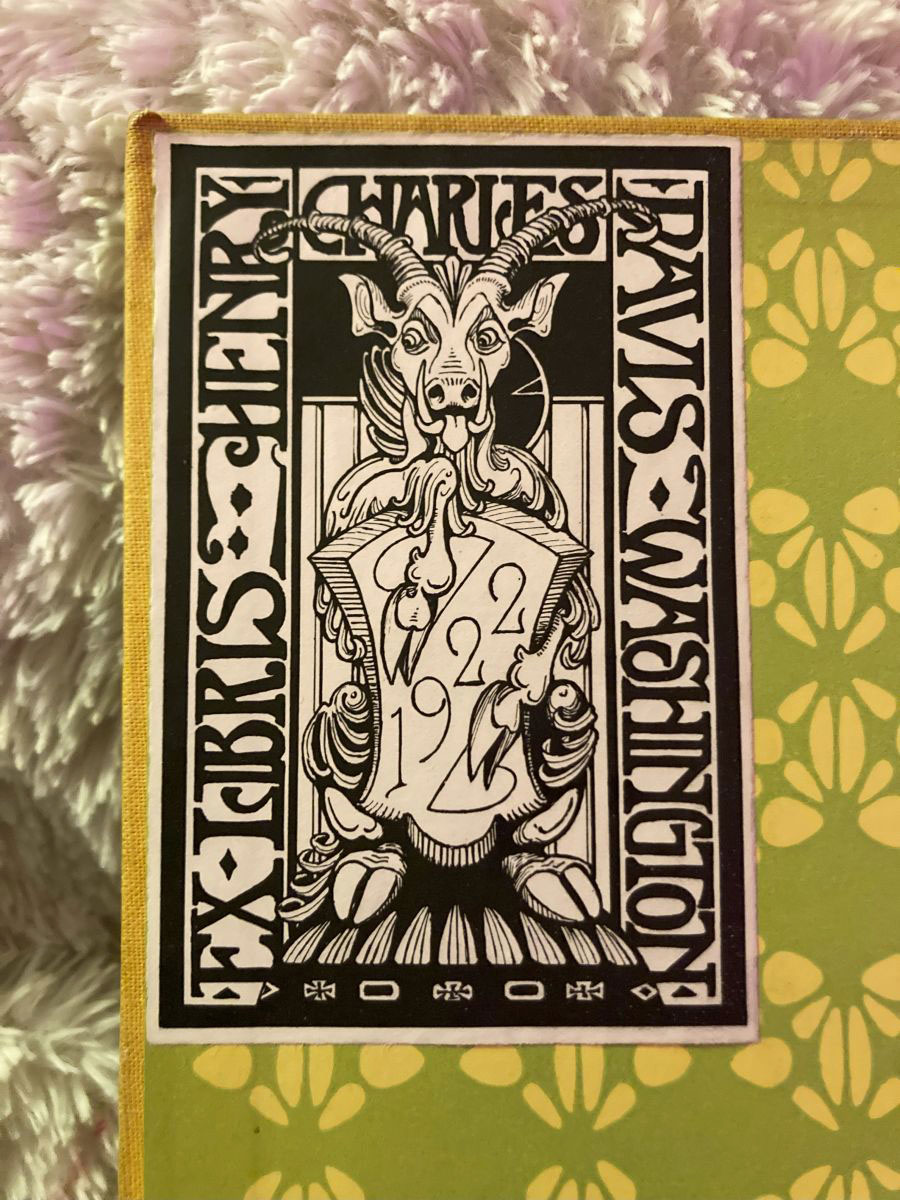
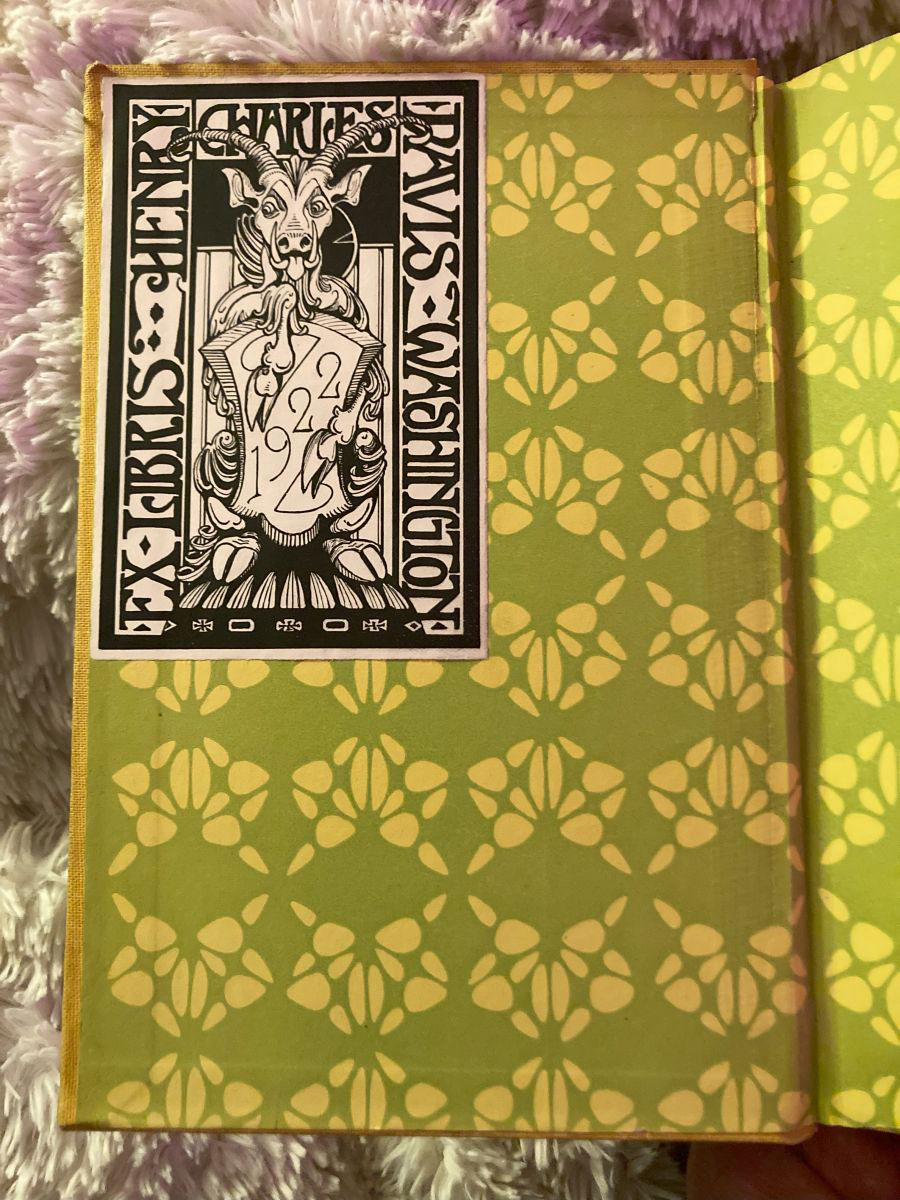
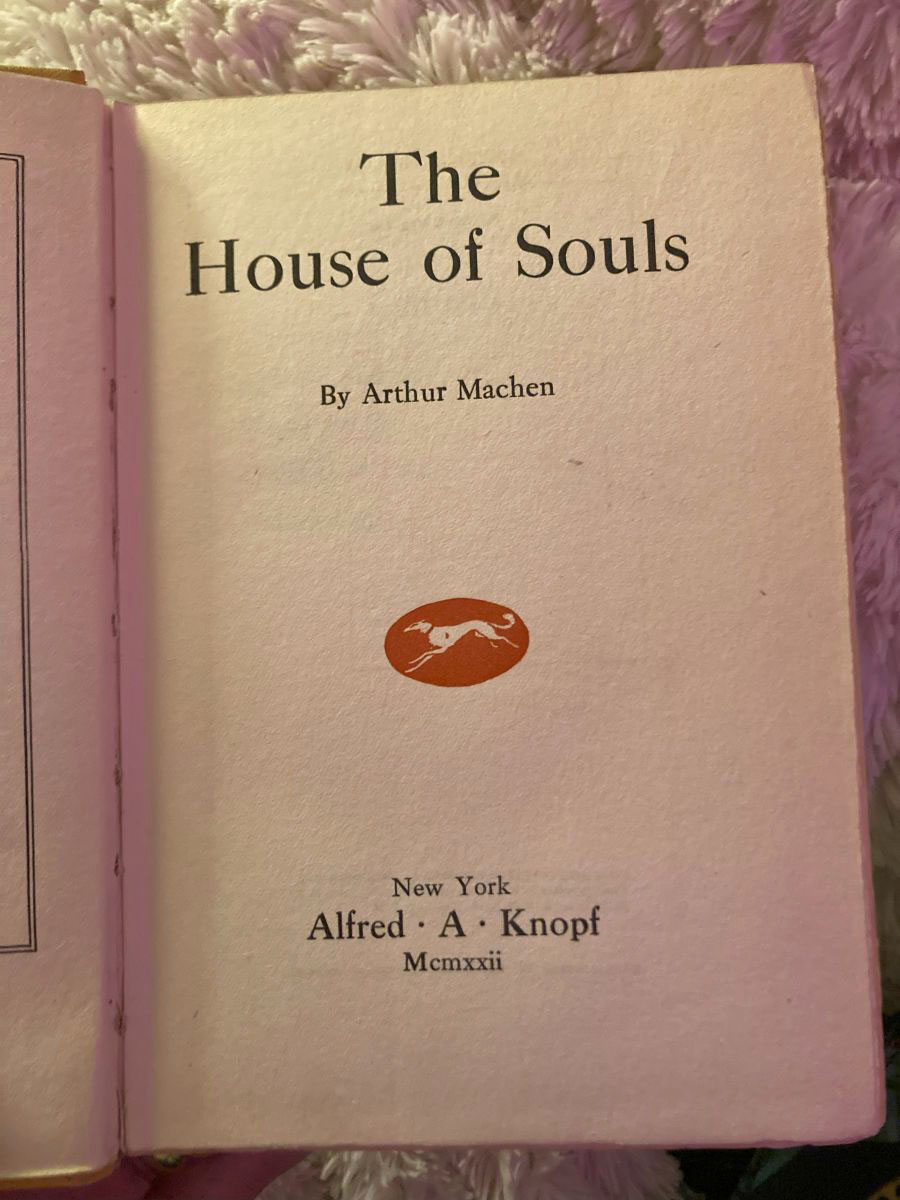
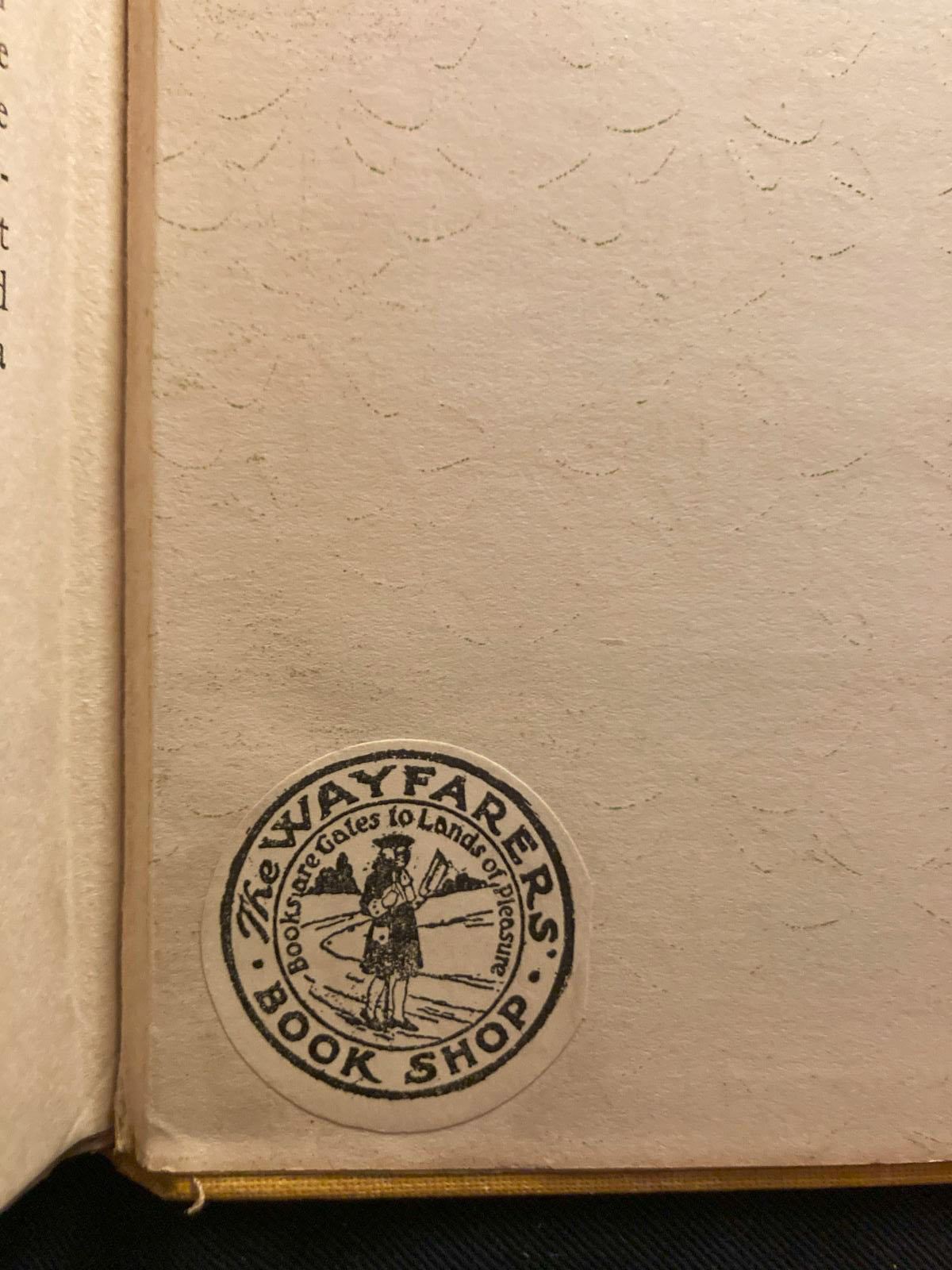
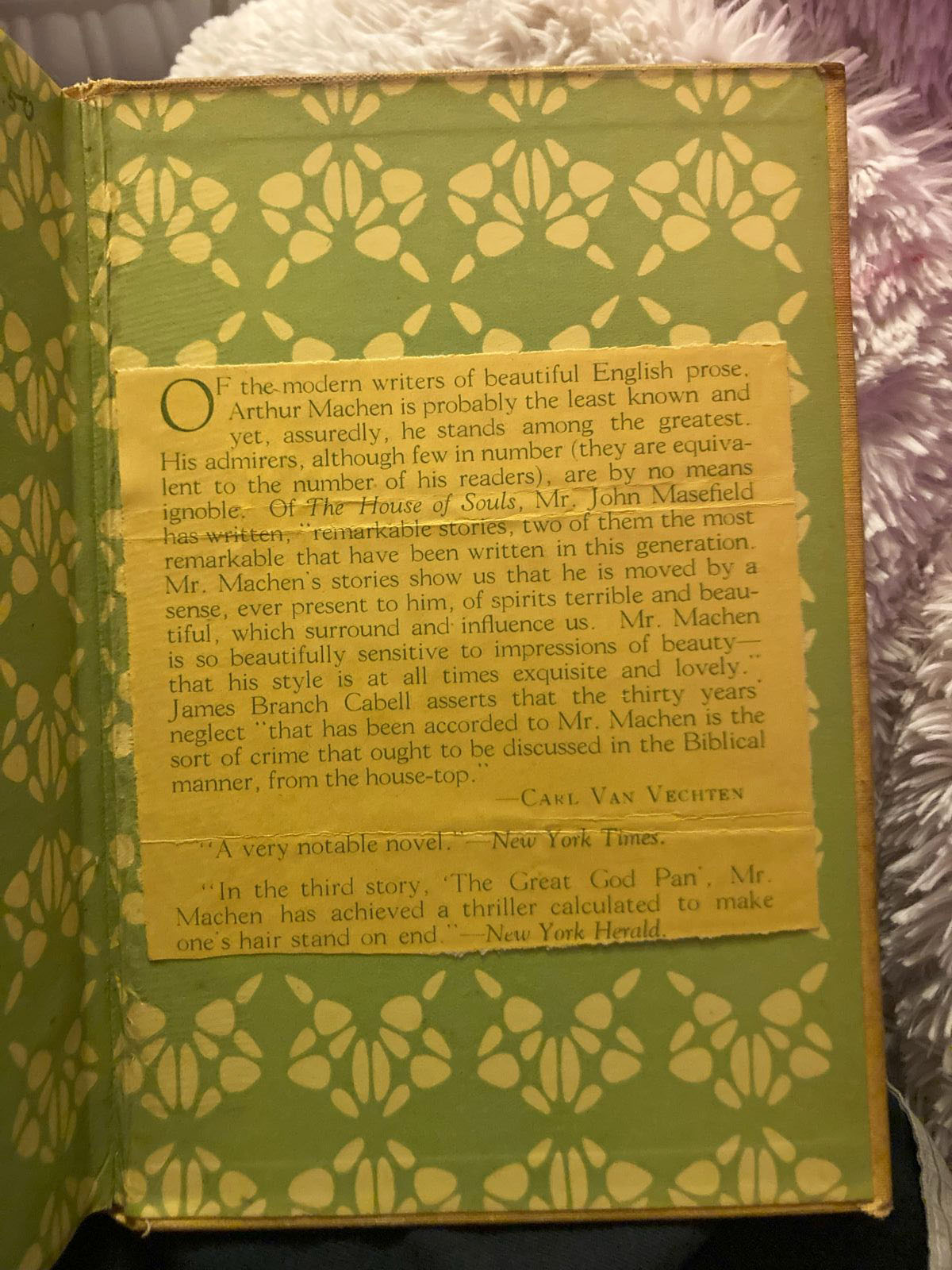
So that's all wonderful. Notice, first, that part of the back dust jacket has been cut-and-pasted into the back endpapers. I don't think people do that much, these days. But what's up with that Wayfarer's sticker?
This is what is known as a bookdealer's ticket, or bookstore ticket, and they go back a few centuries, I think. They're usually fairly simple and rectangular and discrete. This is larger than usual, circular, and just intriguing all around. Probably the most intriguing bookdealer's ticket I've seen, in addition to that bookplate.
Cue research into The Wayfarer's Bookshop, books are gates to lands of pleasure
:
...and this is where trying to recreate that research I did a few years back is breaking down. There is a current bookstore called Wayfarer's, but it has no connection to the one in Washington that was around 100 years ago. I was able to track down an address, circa 1919 on the back of a Theatre Arts Magazine.

1623 H St., N.W. Washington, D.C. That looks to be the U.S. Chamber of Commerce now?
But that doesn't get me very far. If memory serves, the information I did find was through Google Books or the Internet Archive scans of old articles. The one thing this does confirm is that the name on the bookplate refers to the place Washington, and is not a part of the guy's actual name. Seems a safe bet, what with Wayfarer's also being in Washington.
It's not often going to like the fifth page of Google results yields fruit. Below is an ad placed in the October 1920 edition of The Suffragist:
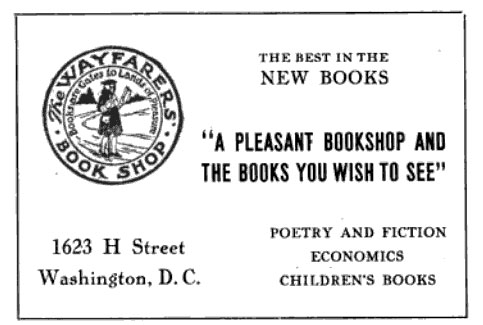
I found this and a couple references to the store in The Suffragist magazine of 1920, which would make sense because from what I was remembering, the store was owned by some enterprising ladies. Finally I found a mention of the store through Google Books, in a biography on the poet Elinor Wylie by Stanley Olsen, published in 1979. Hie thee to the Internet Archive, where, yes! they do have a copy of that biography available to check out for an hour at a time. Page 170-171:
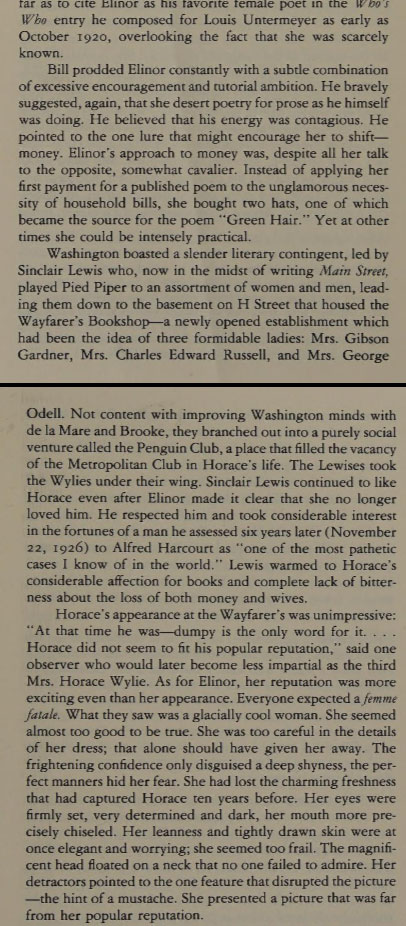
- MRS. GIBSON GARDNER.
- MRS. CHARLES EDWARD RUSSELL.
- MRS. GEORGE ODELL.
newly openedcirca 1920 by these three
formidable ladies. Below is Mrs. Odell, circa 1914, described as
Mrs. George T. Odell, of Washington, D.C., vice-chairman of the Legislative Committee of the Congressional Union for Woman Suffrage, is one of the delegates to the Womans' Party Convention. ... Grand Marshal, suffrage procession in Washington, May 9, 1914, organized by the Congressional Union.
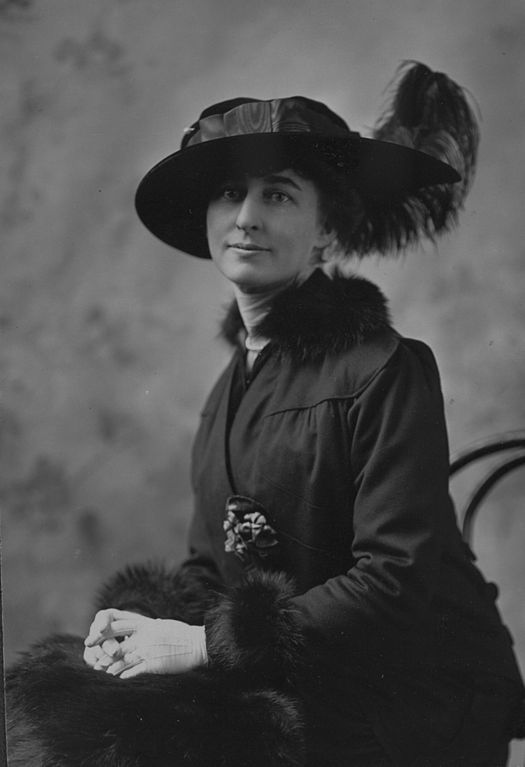
I would love to know more about all three of these ladies and their story of opening up what appears to have been a feminist bookstore. Was there ever such a thing before? Were they the first? How cool were their husbands with it? WHAT WERE THESE WOMEN'S GIVEN NAMES? Maybe I'll try digging some more at a later date. There must be something more out there. I feel like I'm missing some article I'd found last time I did this research.
These are the sorts of rabbit holes I dive into with old books. One neat little bookseller's ticket and a bit of history opens right up. Suddenly the actual book is of almost secondary interest. Almost, as this is a Machen, after all.
And then we have the complete mystery of Mr. Henry Charles Davis and his infernal-looking bookplate. There's gotta be a goddam story behind that.